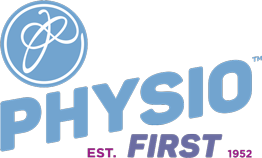Football Injuries
Common football injuries we treat are:
Anterior cruciate ligament sprain
The anterior cruciate ligament, or ACL, is like a strong elastic band inside the knee which helps to stabilise the knee joint on many movements. The most common way of spraining or tearing this ligament is through twisting and is why it is more prevalent in sports that involve a lot of changes of direction such as football, rugby and skiing. Completely ruptured ligaments often require surgery followed by an extensive rehabilitation period. However, if there is a smaller tear or mild sprain, conservative treatment such as physiotherapy can often be successful. It will generally require a lot of stability work, involving balance and strength exercises. However, improvign the strength and stability of the ACL and surrounding knee structures prior to injury means you are less likely to injure it in the first place!
To request an appointment click here.
↑ Back to TopHamstring strain/tear
The hamstrings are the group of muscles on the back of your thigh. There are 3 on each leg and they travel downwards from the pelvis to just below the knee. Their primary functions are bending the knee and extending the leg behind you. Commonly these are caused by overstraining or overstretching, and frequently occur in sports where there is sprinting involved such as football, athletics and rugby.
The aim of treatment initially is to minimise pain and restore movement before progressing to strengthening and rehabilitation exercises. .
To request an appointment click here.
↑ Back to Top ↑ Back to TopLisa, Ealing aged 34 Read more Testimonials“ I would like to thank the team at Ealing Physio for their professionalism and kindness that I received while I was a patient. Christina Carlsen helped me walk again without pain in just over a month, and also treated other parts of my body that were associated with my hip/back problem. I confidently can say Christina is the only physio that has been able to manipulate my neck without it hurting me while she was doing it. I would recommend Ealing Physio to anyone in need of physiotherapy”
For more information on the conditions we treat and services we offer, or to book an appointment please call
020 8847 1887 or email us at reception@ealingphysio.co.uk







